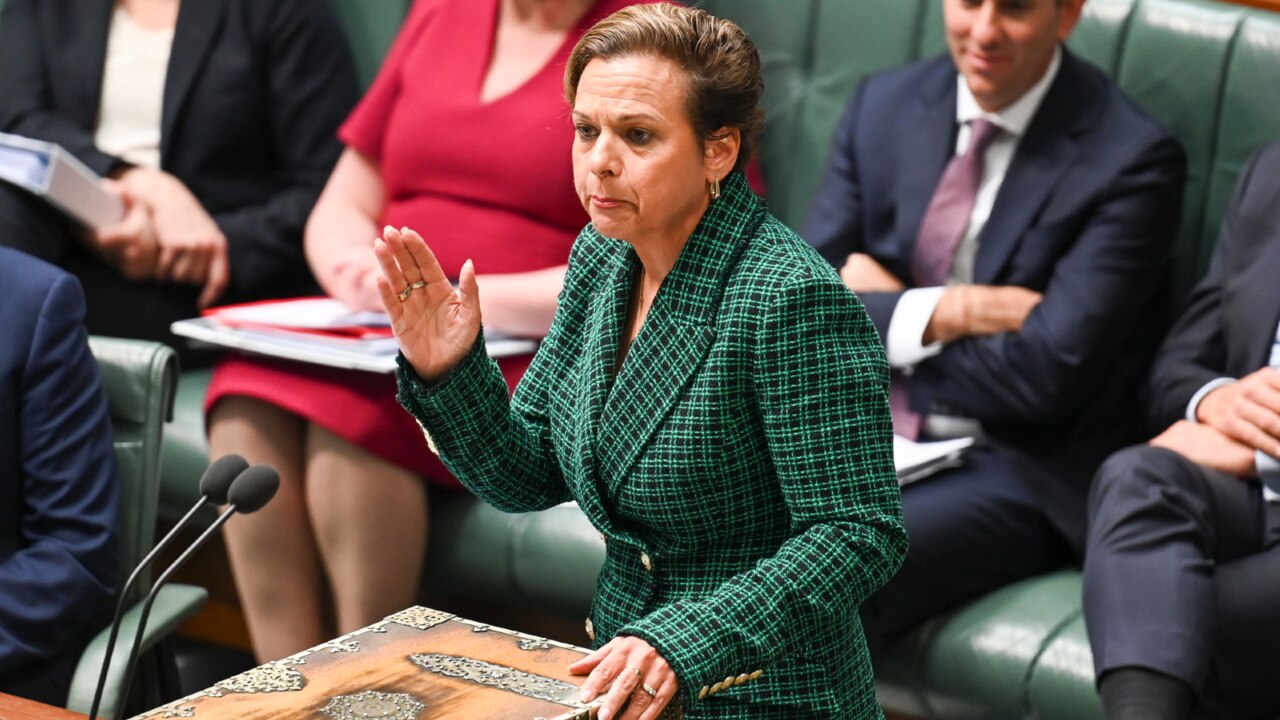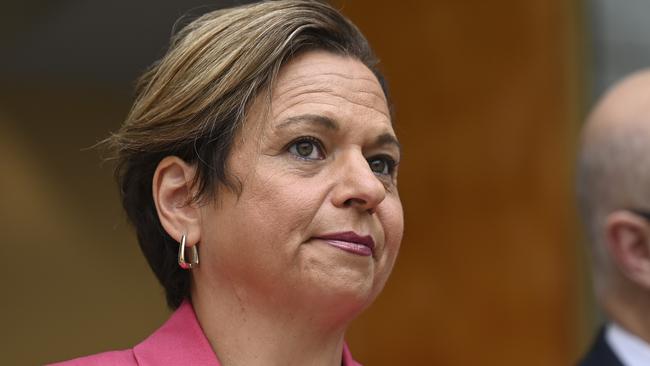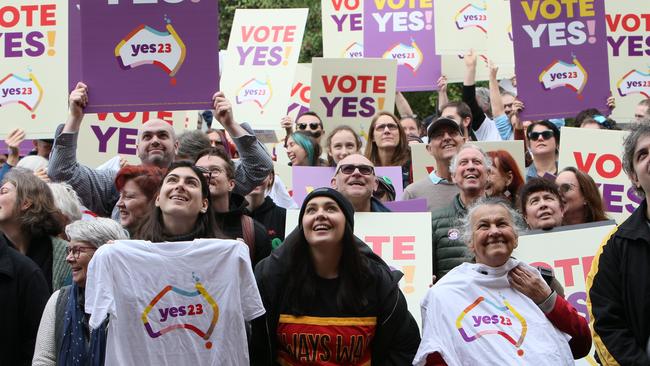Labor slammed for hypocrisy over plan to ‘tell us what we can and cannot say’ online
Communications minister Michelle Rowland has been accused of hypocrisy after she told EU bureaucrats that Labor has been “open and transparent” about its so-called “misinformation bill”.

News
Don't miss out on the headlines from News. Followed categories will be added to My News.
Communications minister Michelle Rowland has been accused of hypocrisy after she told EU bureaucrats that Labor has been “open and transparent” about its so-called “misinformation bill” despite failing to reveal key details about the legislation, including the power of the minister to initiate investigations.
Speaking to the International Institute of Communications in Brussels on Tuesday, Ms Rowland said that “we wanted to be very open and transparent, because we know this is a novel piece of legislation.”
However, writing in today’s Daily Telegraph, Shadow Communications Minister David Coleman called that openness into question, noting that Ms Rowland “secretly wrote to the Prime Minister asking for the power to personally order misinformation investigations whenever she wants.”
“It is shocking that the Prime Minister said yes. It is even more shocking that Australians were never told about it.”
“It is not for governments to tell us what we can and cannot say.”

In December, documents released after Freedom of Information requests revealed that last June Assistant Minister to the Prime Minister Patrick Gorman agreed on behalf of Anthony Albanese to the request for the minister to be able to initiate investigations.
Mr Coleman said that this was a “recipe for disaster.”
“We saw during the Voice debate that almost every day, the Albanese Government described views it did not like as “misinformation”. If this law had existed then, the Minister could have used it to order investigations.”

In her speech, Ms Rowland also told the group that Australia should be “taking cues from … like minded liberal democracies” about how it policed online speech, raising alarm with experts who say that Western countries have harmed free speech in their quest to regulate the internet.
“If you look at nations such as Ireland and Germany, where similar laws have been passed, it has had a chilling effect on free speech,” said Daniel Wild, deputy executive director of the Institute of Public Affairs.
“The idea that the federal government should be the arbiters of the ‘official truth’ will have dire consequences on public debate in Australia, with mainstream Australians the first to be censored.”
As drafted, the proposed misinformation bill also allows communications regulators wide ranging powers including the ability to force any Australian to answer questions about misinformation at a time and place of their choosing or face fines of up to $9,000 per day.
Legal and free speech groups have blasted the proposed law and its penalties, which provide heavy penalties for individuals while exempting the government from claims of “misinformation.”
The Law Council of Australia has also noted that because there is no right against self-incrimination, the law “could lead to a position where a person is compelled to produce documents that later expose them to significant civil penalties”.
Labor has indicated that it was planning on revising the law while still introducing it this year.
Ms Rowland was contacted for comment.





